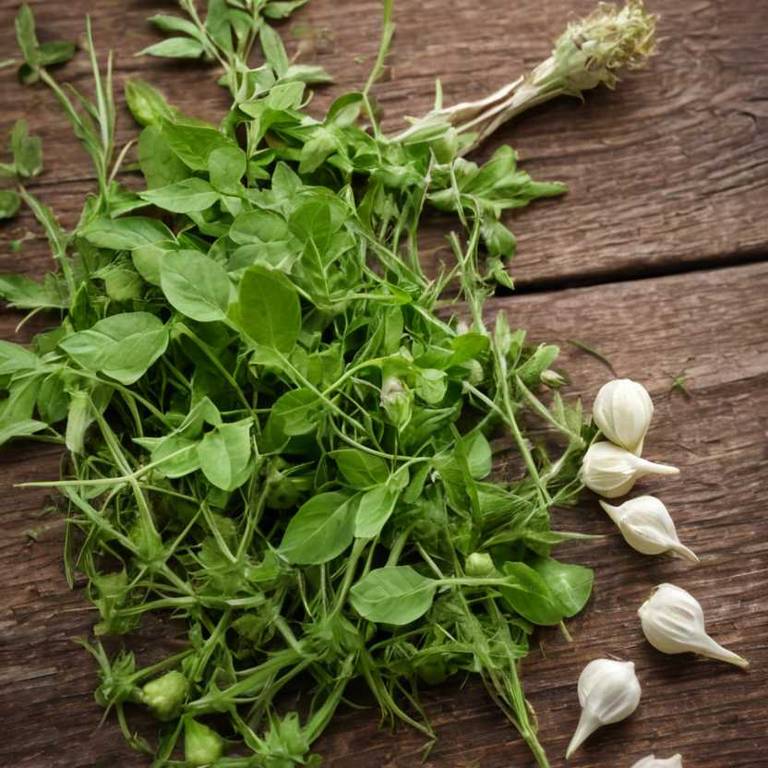By Leen Randell
Updated: Jul 21, 2024
10 Medicinal Constituents Of Gossypium Hirsutum (Cotton)

Gossypium hirsutum has active constituents such as flavonoids, alkaloids, and phenolic acids.
These medicinal properties include anti-inflammatory, antioxidant, and antimicrobial activities. The constituents in cotton can improve people's lives by alleviating skin irritations, reducing inflammation, and protecting against microbial infections.
For instance, cottonseed oil, extracted from the seeds of the plant, is used in cosmetics and pharmaceuticals to soothe skin conditions and promote wound healing.
This article explains in details the 10 best active constituents of Gossypium hirsutum.
1. Gossypol
Gossypium hirsutum gossypol is a toxic compound extracted from its seeds.
It has been used as a natural insecticide and pesticide for centuries to control pests in agriculture. Gossypol has also shown potential antiviral properties and has been investigated as an alternative treatment for certain cancers.
Additionally, it has been used as a preservative in the food industry due to its antimicrobial effects.
2. Malic acid
Gossypium hirsutum malic acid is a naturally occurring compound found in its leaves and stems.
It belongs to a group of organic acids called alpha-hydroxyacids, which are known for their potential biological activities.
Malic acid has been reported to possess antioxidant, anti-inflammatory, and antimicrobial properties, making it a promising natural product for various applications, including food preservation, pharmaceuticals, and biotechnology.
3. Tartaric acid
Gossypium hirsutum tartaric acid is a naturally occurring organic compound found in the leaves and stems of this plant.
It is a crystalline acid that has been used for various applications, including as a food additive, a pharmaceutical intermediate, and a precursor to other chemicals. Tartaric acid is also used in the production of textiles, dyes, and cosmetics.
Its unique properties make it a valuable resource for various industries.
4. Flavonoids
Gossypium hirsutum flavonoids is a type of plant compound found in its leaves and stems.
These flavonoids have been shown to exhibit various biological activities, including antioxidant, anti-inflammatory, and antimicrobial properties.
They have been reported to contribute to the plant's resistance to pathogens and insects, and may also play a role in the regulation of plant growth and development.
5. Saponins
Gossypium hirsutum saponins is a group of natural compounds found in the leaves and stems of the plant.
These glycosides are responsible for the bitter taste and astringent properties of raw cottonseed oil.
Saponins have been reported to possess various bioactivities, including antioxidant, anti-inflammatory, and antimicrobial effects, making them potential candidates for the development of novel pharmaceuticals and cosmetics.
6. Anthraquinones
Gossypium hirsutum anthraquinones is a class of bioactive compounds extracted from its seeds and stems.
These compounds have been found to possess various biological activities, including antioxidant, anti-inflammatory, and antimicrobial properties.
Research has shown that Gossypium hirsutum anthraquinones may be effective in treating diseases such as diabetes, cancer, and Alzheimer's, making them a promising area of study in the fields of medicine and pharmaceuticals.
7. Alkanes
Gossypium hirsutum alkanes is a type of waxy substance found in the plant's fibers and seeds.
These alkanes are responsible for the soft and smooth texture of cotton fabric, making it ideal for clothing and textiles. Additionally, they provide resistance to pests and diseases, and have been shown to possess antimicrobial properties.
The unique composition of Gossypium hirsutum alkanes is a key factor in its widespread use in various industries.
8. Tannins
Gossypium hirsutum tannins is a group of compounds found in its seed and bark.
These tannins are responsible for the astringent taste and bitterness associated with certain types of tea or infusions made from cotton seeds.
They also have antioxidant properties and have been studied for their potential health benefits, including anti-inflammatory and antibacterial effects.
9. Glycosides
Gossypium hirsutum glycosides is a type of natural compound found in the plant.
Specifically, it refers to a class of sugar-like molecules called glycosides that are derived from the cotton seed extract.
These compounds have been shown to possess various biological activities, including antioxidant, anti-inflammatory, and antimicrobial properties, making them a subject of interest for potential therapeutic applications.